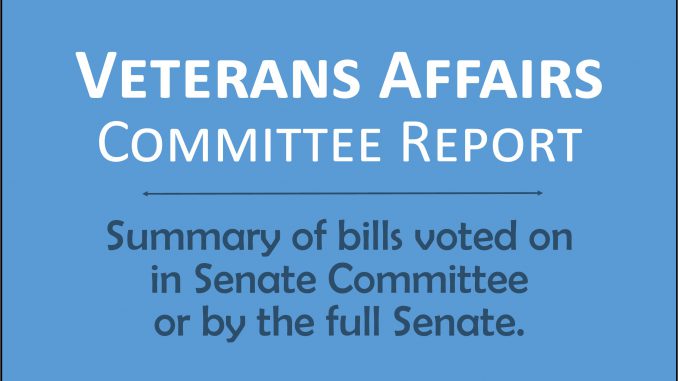
SF 63 – Service animals in housing
SF 124 – Notice of incarcerated veterans
COMMITTEE ACTION:
SF 63 – Service animals in housing
SF 63 relates to assistance animals and service animals in housing, and misrepresenting oneself as entitled to such an animal in housing.
The Iowa Civil Rights Commission will work with the Attorney General’s Consumer Protection Division to develop a verification form for providers to use in written findings. The form can only allow for a “Yes” or “No” response as to whether the patient or client has a disability and whether the need for the animal is related to the disability. The form cannot allow for additional detail. The bill also conforms Iowa’s definition of “service animals” to the federal definition: dogs and miniature horses only. The bill requires a landlord to waive any restrictions, fees or other charges assessed tenants with pets. A person who intentionally misrepresents an animal as a service animal or service- animal-in-training could be charged with a crime.
A person commits this offense if all of these elements are established: for the purpose of obtaining any of the rights or privileges set forth in state or federal law, the person intentionally misrepresents an animal in one’s possession as one’s service animal or service-animal-in-training or a person with a disability’s service animal or service-animal-in-training whom the person is assisting by controlling; the person was previously given a written or verbal warning that it is illegal to intentionally misrepresent an animal as a service animal or a service-animal-in-training; and the person knows that the animal in question is not a service animal or a service-animal-in-training. The offense is a simple misdemeanor, punishable by confinement for no more than 30 days, or a fine of at least $65 but no more than $625, or by both.
The bill gives owners of real property immunity from liability for injury or damage caused by service animals and service-animals-in-training if the owner believes in good faith that the animal is a service animal or a service-animal-in-training and the person using the animal is a person with a disability, a person assisting a person with a disability by controlling a service animal or a service-animal-in-training, or a person training a service-animal-in-training; and, the injury or damage is not caused by the owner’s negligence, recklessness or willful misconduct.
A corrective amendment was adopted to clarify that the substantive portions of SF 63 do not apply to “assistive animals” under chapter 717F, only to “assistance animals” and service animals as defined by the ADA and the federal Fair Housing Act.
[2/19: short form (Excused: Miller-Meeks)]
SF 64 – ‘Green Alert’ program
SF 64 creates a state “green alert” program for missing veterans-at-risk, similar to the “Amber Alert” system. It adds “veteran-at-risk” to the definition of a “missing person.” A veteran-at-risk is a veteran or an active-duty service member who, based on information provided by a person filing a complaint, has a service-related physical or mental health condition. The law enforcement agency will then prepare a missing person report and disseminate it to other law enforcement agencies. This proposal is a work-in-progress, but the Committee wanted to move it forward for more discussion. It is a companion bill to HF 286 and similar to HF 424, both of which are assigned to the House State Government Committee.
[2/19: short form (Excused: Miller-Meeks)]
SF 124 – Notice of incarcerated veterans
SF 124 enhances Iowa law for incarcerated veterans. Currently, the personnel of a jail or municipal holding facility must inquire whether a prisoner is a veteran and, if so, must inform the prisoner, within 24 hours of the veteran’s incarceration, that they may be entitled to a visit from a veteran service officer (VSO) to determine if veteran services are required or available. Within 72 hours, the prisoner must be given contact information for the county VSO and be allowed to contact the VSO to request a visit. This proposal states that the personnel of a jail or municipal holding facility must attempt to notify the county commission of veteran affairs of the incarceration of a veteran within 24 hours of the veteran’s incarceration. Notice may be communicated by a telephonically recorded message or electronically by e-mail.
[2/19: short form (Excused: Miller-Meeks)]
